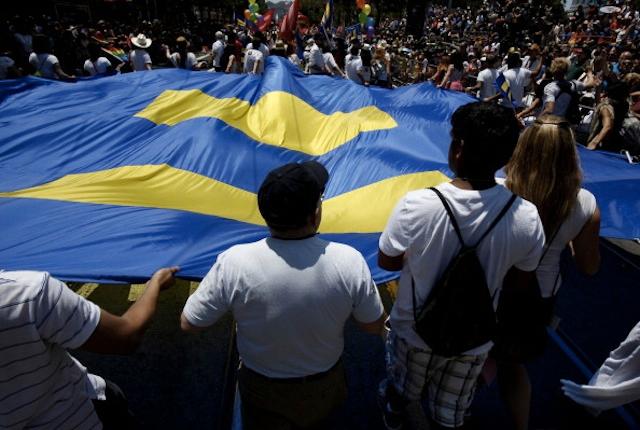Will a Michigan case invalidate state gay marriage bans?

Just last week, a divided Supreme Court struck down the Defense of Marriage Act, ruling that excluding same-sex married couples from the federal definition of marriage unfairly discriminated against people in those unions. Now, a federal judge in Michigan has green-lighted a discrimination case brought by a same-sex couple that could be among the first to test how the DOMA decision will affect the dozens of state-level gay marriage bans around the country.
The case involves April DeBoer and Jayne Rowse, two female nurses who live together with their adopted children in Hazel Park, Mich. The same-sex couple wants to jointly adopt their three children, but the Michigan Marriage Amendment, which defines marriage in the state as between only opposite-sex couples, prevents them from legally doing so. (Separately, the state allows only single people and married heterosexual couples to adopt.)
In a court filing on Monday, District Judge Bernard Friedman denied a motion from the Michigan government to dismiss the couple's case, ruling that the Supreme Court's DOMA decision, Windsor v. U.S., shed new light on the claim.
Plaintiffs are prepared to claim Windsor as their own. ... And why shouldn’t they? The Supreme Court has just invalidated a federal statute on equal protection grounds because it “place[d] same-sex couples in an unstable position of being in a second-tier marriage.” Moreover, and of particular importance to this case, the justices expressed concern that the natural consequence of such discriminatory legislation would not only lead to the relegation of same-sex relationships to a form of second-tier status, but impair the rights of “tens of thousands of children now being raised by same-sex couples” as well. This is exactly the type of harm plaintiffs seek to remedy in this case.
But Friedman, a Ronald Reagan appointee, also noted that the state will be able to use the Windsor decision in its defense as well.
The justices wrote in that opinion that states have a "historic and essential authority to define the marital relation," an authority that DOMA intruded upon. Michigan can argue that its voters have a right to define marriage as only between a man and a woman under this authority, even as 12 states choose to allow same-sex marriages.
Justice Anthony Kennedy, the court's conservative-leaning swing vote, wrote in the Windsor opinion that DOMA imposed "a disadvantage, a separate status, and so a stigma upon all who enter into same-sex marriages made lawful by the unquestioned authority of the States." He concluded that states must be allowed by the federal government to confer "dignity" on same-sex couples if they choose to legalize gay marriage without the federal government telling "those couples, and all the world, that their otherwise valid marriages are unworthy of federal recognition."
The case is just one of several challenging state gay marriage bans that are making their way through the courts. Gay couples are suing in Nevada, Illinois, Hawaii and New Jersey, which allow civil unions or domestic partnerships but not gay marriage. The Supreme Court stopped short of ruling there is a fundamental right to marriage that gay and lesbian people should not be denied, so it's unclear how the justices would rule if one of these cases reached them.
A date has not yet been set for the Michigan trial.



